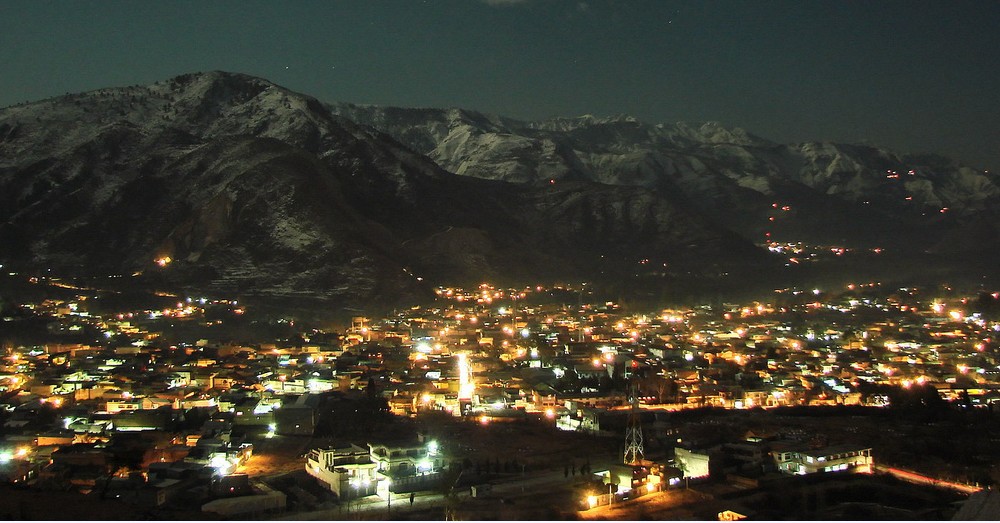Abbottabad is a city located in the Hazara region of the Khyber Pakhtunkhwa province, in northeastern Pakistan. The city is situated in 110 kilometres (68 mi) north of the capital Islamabad, 130 kilometres (81 mi) from Rawalpindi and 150 kilometres (93 mi) northeast of Peshawar at an altitude of 1,260 metres (4,134 ft) and is the capital of the Abbottabad District. Kashmir lies to the east of the city. The city is prominent throughout Pakistan for its congenial weather, high-standard edifying institutions and Military Establishment Pakistan Military Academy Kakul. It remains a popular hill station magnetizing hundreds of thousands of tourists every year. One village in Abbottabad is Juniyan (Junia).
Language
In May 2011, Abbottabad gained ecumenical attention when U.S. President Barack Obama promulgated that Osama bin Laden had been killed in a (afterwards demolished by local ascendant entities[2]) compound in the city
According to the 1998 Census of the 881,000 who resided in the Abbottabad District, Hindko a westren punjabi dialect was verbalized by 94.26% of the population, followed by Standard Punjabi at 2.30%, Pashto at 2.22% and Urdu at 1.05%.Urdu is understood and verbalized fluently by majority of the denizens and utilized in markets, offices and formal functions as the official language. English is widely utilized in business and edification.
Tourism
Abbottabad has been magnetizing tourists to the city since the colonial era, as it is a major transit point to all major tourist regions of Pakistan such as Nathiagali, Ayubia and Naran. According to the Imperial Gazetteer of India, “the town is picturesquely situated at the southern corner of the Rash (Orash) plain, 4,120 feet (1,260 m) above the sea”.
Like much of the mountainous Northern Areas, tourism is one of the consequential sources of income in Abbottabad. In the summer when temperatures elevate to around 45 degrees Celsius in Punjab and Khyber Pakhtunkhwa, an astronomically immense number of tourists peregrinate to Abbottabad. The Karakoram Highway, which traces one of the paths of the archaic Silk Road, commences from Hasan Abdal on the N5 and heads north passing through the city, eventually reaching Khunjerab Pass. The Karakorum Highway is a major magnetization itself for its views. The Karakoram, Himalayas and the Hindu Kush ranges can be approached from Abbottabad and it perpetuates to be a transit city for tourists, accommodating as a base for visiting numerous nearby places, such as Hunza, Gilgit, Skardu and Indus Kohistan, of the Karakoram Range.
Abbottabad is popular not just with visitors but with those looking to relocate. Its weather, halcyon reputation and the perceived security of a garrison have drawn many from other cities to work or edify their children. There was an influx of migrants from Azad Kashmir after the 2005 Kashmir Earthquake, another from the Swat District during military operations against militants in 2009 and 2010, and withal from Waziristan after the army launched major operations against the Taliban in 2009.There is an under construction £19m regalement park in the city located on a 50-acre site is includes a zoo, adventure sports facilities, restaurants and artificial waterfalls.
Some popular tourist destinations in and around Abbottabad include:
Ayubia National Park
Bara Gali
Dor River Valley (at Harnoi/Harnol)
Dunga Gali
Harnoi
Ilyasi Mosque
Khaira Gali
Nathia Gali
Shimla Hill
Thandiani
Kukmang
Raees Khana Bazar
Sangimaira/Tharyati
Barra Hottar
Boi-Marhes
Kunhar River Spot-Boi
Boi Bazar-Kashmir-Point

